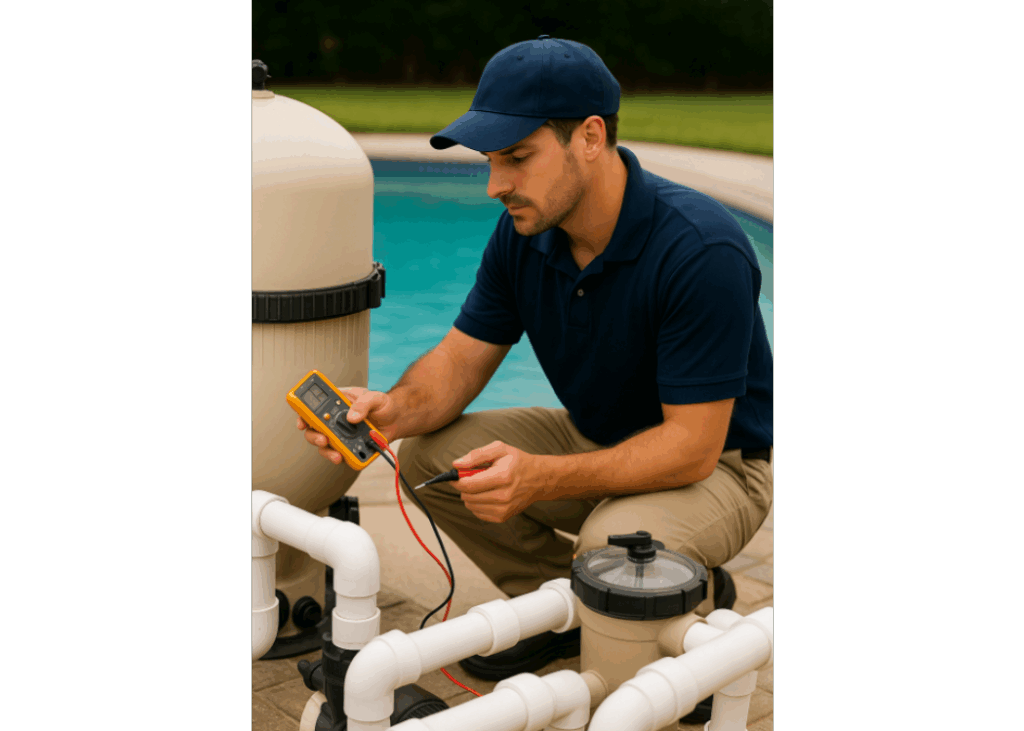Why a Residential Pool Inspection Is a Smart Investment
A residential pool inspection is more than a routine check—it’s a smart move to protect your investment, property, and loved ones. Whether you’re buying a new home with a pool or maintaining one you’ve enjoyed for years, an inspection ensures your pool is safe, functional, and free of hidden issues.
Structural and Safety Checks Prevent Future Costs
A professional residential pool inspection focuses on identifying cracks, leaks, or weaknesses in the pool’s structure. Inspectors assess the pool shell, deck, coping, tile, and surrounding surfaces for signs of wear, water loss, or foundation problems. Early detection can prevent water damage, costly resurfacing, or structural failure down the road.
Safety is just as important. Inspectors check for proper fencing, secure self-closing gates, anti-entrapment drain covers, and compliance with local safety codes. A pool lacking basic safety features poses a liability risk and could lead to fines or insurance issues. If you have children, elderly family members, or pets, a secure and code-compliant pool area is essential for preventing accidents.

Equipment and System Performance Assessment
A residential pool inspection also includes a detailed review of the pool’s circulation, filtration, and heating systems. The inspector tests the pump, filter, chlorinator, timer, skimmer, and heater to ensure they work efficiently. Even small issues—like clogged filters or worn-out gaskets—can reduce performance and cause larger problems if left unresolved. In addition to the main systems, inspectors also evaluate underwater lighting, spa features, automation systems, and electrical connections. Damaged wiring or outdated components can pose serious hazards, especially in wet environments. Verifying safe and efficient operation helps ensure you can enjoy the pool without worry.
Routine inspections can also improve energy efficiency. A well-maintained system uses less electricity and fewer chemicals, helping to lower your monthly utility bills and reduce the pool’s environmental impact.

A Smart Move for Buyers and Homeowners
If you’re buying a home with a pool, a residential pool inspection provides valuable insight before finalizing the purchase. A general home inspection may not cover all aspects of the pool’s condition. A dedicated pool inspection report helps you understand the condition of all systems and surfaces—and can even help you negotiate repair costs with the seller.
For current homeowners, annual inspections help extend the life of your pool and protect its value. Routine checkups can catch issues early, reduce long-term maintenance costs, and ensure your pool stays a relaxing retreat for years to come.
Schedule Your Residential Pool Inspection Today
With a professional residential pool inspection, you can avoid expensive surprises and safeguard your property. It’s a smart investment that helps you protect your home and family.
Contact us to schedule your inspection today or explore our pool services to learn more. For more home maintenance tips and helpful advice, visit our Complete Home Inspection blog page.
